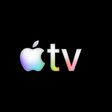New M4-based Macs are reportedly unable to run virtual machines of older macOS versions prior to macOS Ventura 13.4, according to user reports and developer findings.

According to an in-depth write-up by the Eclectic Light Company's Howard Oakley, security researcher Csaba Fitzl highlighted the issue, which has been documented in Apple Feedback and affects popular virtualization software including UTM. When attempting to run a virtual machine with an earlier version of macOS on M4 Macs, users encounter a black screen, and the VM fails to boot entirely.
The limitation appears to occur during early kernel boot processes, as indicated by Activity Monitor showing only one active virtual core despite multiple cores being allocated. This suggests the failure happens before the VM kernel can initialize additional cores.
The limitation is not an issue on M1, M2, and M3 Macs, all of which can successfully run VMs of macOS Monterey (12.0.1) and later versions (with some limitations), though Big Sur virtualization was never supported on Apple silicon Macs.
For users who rely on older macOS versions in virtual machines for testing or compatibility purposes, this limitation may be an important consideration before upgrading to M4-based Macs. Currently supported macOS versions for virtualization on M4 Macs include:
- macOS Ventura 13.4 and later
- macOS Sonoma 14
- macOS Sequoia 15
Given the nature of the issue occurring early in the boot process, Oakley reports that a fix would likely require Apple to release updated IPSW files for older macOS versions, which would be unprecedented for the company, perhaps making it unlikely.
The restriction adds to existing virtualization limitations on Apple silicon Macs, such as the inability to run App Store applications in VMs. Apple did however introduce a notable enhancement to its virtualization framework in macOS Sequoia by enabling Mac users to sign into iCloud within macOS VMs.
Apple in October unveiled new M4 powered versions of its iMac, Mac mini, and MacBook Pro models. For more information on the virtualization issue, be sure to read Oakley's informative write-up.



















